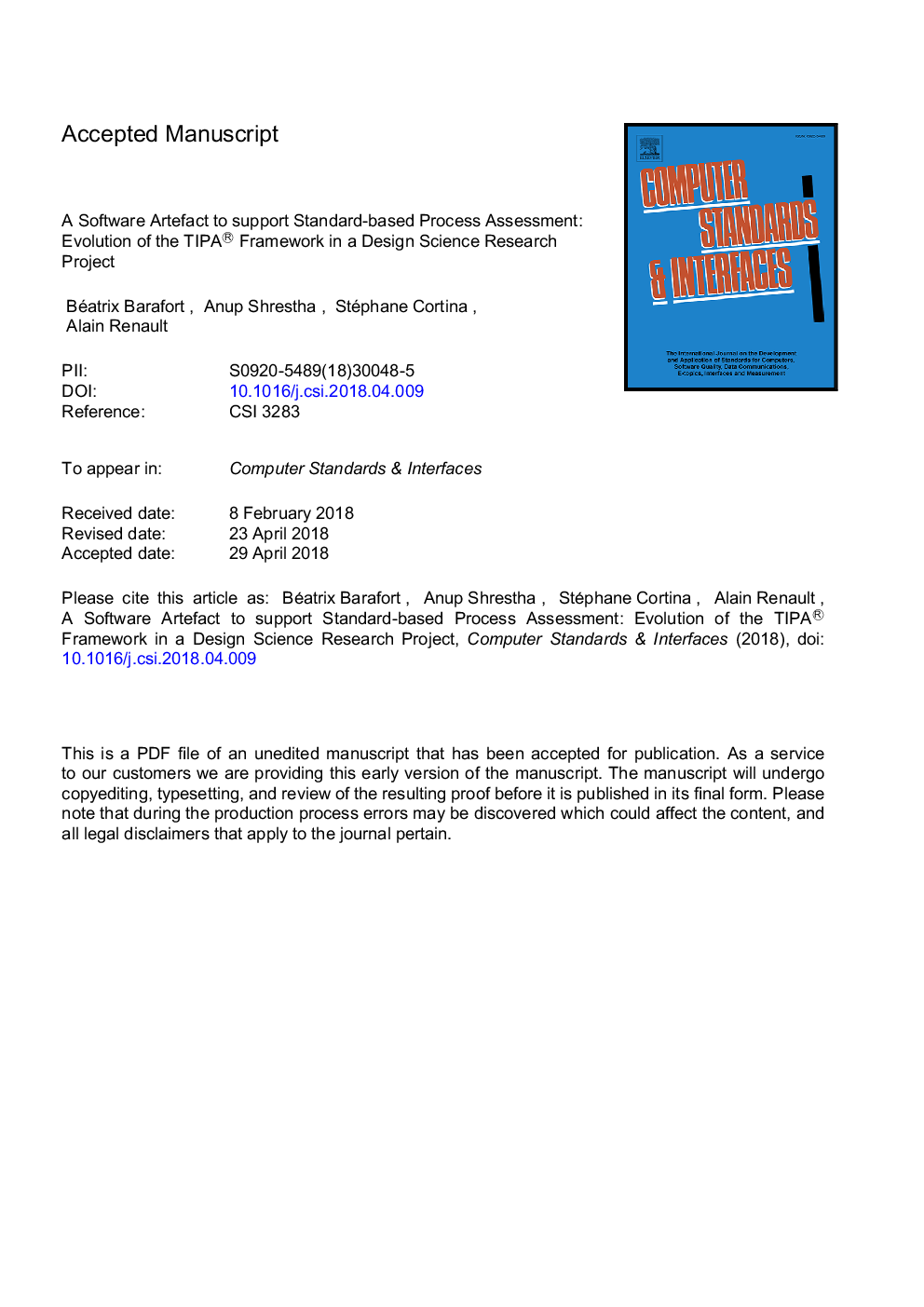| Article ID | Journal | Published Year | Pages | File Type |
|---|---|---|---|---|
| 6883114 | Computer Standards & Interfaces | 2018 | 31 Pages |
Abstract
Managing processes remain a key challenge for most organizations which need to preserve competitiveness. Process assessment frameworks can help by providing instruments guiding process improvement and regulation alignment. Several process assessment frameworks such as TIPA® are based on the ISO Process assessment standard series ISO/IEC 15504, currently revised in the ISO/IEC 330xx family of standards. Following a Design Science Research (DSR) methodology, this paper visits the TIPA Framework evolution throughout iterative cycles in terms of design, rigour and relevance. It investigates how original and new artefacts are being developed and improved, in particular the new strategic move towards the automation of the assessment process represented by a new software artefact. By demonstrating the evolution of the TIPA framework using a DSR perspective combined with Action Design Research for the new software artefact, this paper explicates design knowledge regarding the role and value of the framework within the ISO standards community and in practice.
Related Topics
Physical Sciences and Engineering
Computer Science
Computer Networks and Communications
Authors
Béatrix Barafort, Anup Shrestha, Stéphane Cortina, Alain Renault,
